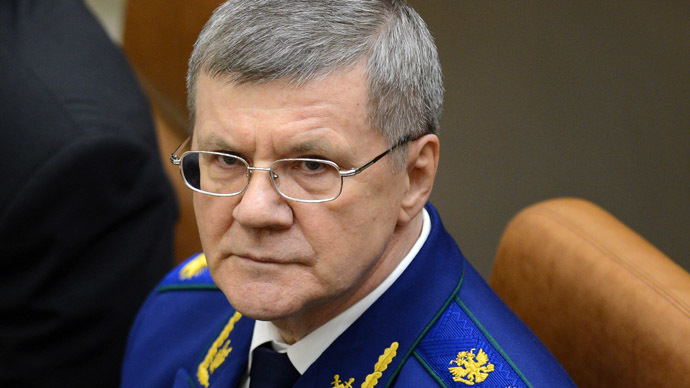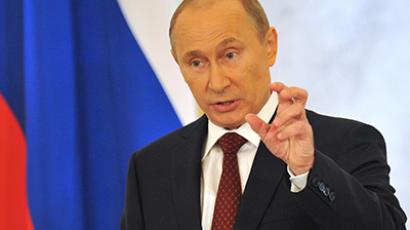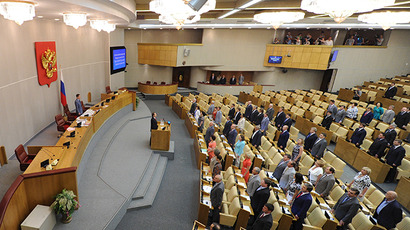Prosecutor General demands tougher punishment for corruption

The Top Russian Prosecutor has proposed a bill making a prison sentence the only punishment for anyone convicted of corruption. It is in line with President Vladimir Putin’s observation that the 2011 softening of anti-corruption laws was not working.
Prosecutor General Yuri Chaika addressed the upper house session on Monday and said that compensatory punishment or fines were not acting as a deterrent – one of the key points that provide the rule of law.
“In order to rule out the possibility of bailing oneself out of a serious crime, like a corruption-related crime, by just paying a simple fine, a bill has been prepared that provides for only prison time for grave crimes, including corruption,” the prosecutor told the lawmakers.
The current laws allowing fines for bribery, both in state administration and in private businesses, were introduced in 2011 under then-president Dmitry Medvedev as part of a campaign aimed at boosting entrepreneurship and improving the business climate in the country. Russian law enforcers opposed the move from the moment it was first suggested and prosecutors warned that the changes could simply lead to increases in bribes as criminals would seek compensation for future punishment.
However, in Autumn 2013 President Putin criticized the changes in his speech before the Anti-Corruption Council – a special body of top law enforcers and state officials.
“The practice shows us that the liberalization is not working the way it should,” Putin said. According to the president, 692 people were convicted for taking bribes in the first half of 2013 and only 8 percent of them were sentenced to prison time, while the majority got away with fines that the criminals managed not to pay by using various loopholes.
Putin then told the council members that he expected them to submit particular suggestions on fighting corruption, suggesting to start with the area of communal services, consumer market and various government tenders.
Putin also urged the officials to make anti-graft standards universally accepted. He added that society and business had the right to demand the state strictly observed all anti-corruption laws, but should not act as indifferent observers. Moreover, quite often citizens were pushing civil servants towards violations in pursuit of their own business interests.














